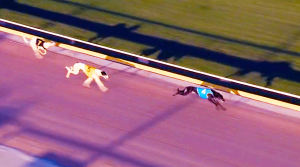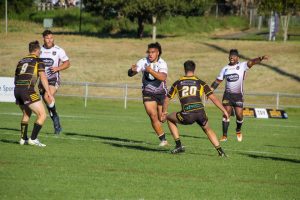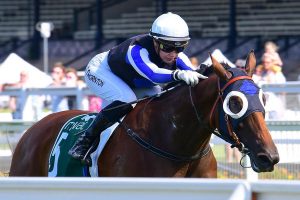Where there is top-flight sport, controversy inevitably follows.
Poor sportsmanship, dodgy officiating, off-field drama, downright cheating – we’ve seen it all over the years.
But some incidents linger longer in the memory than others, even to the point where they become part of sporting folklore.
Sadly, certain codes and disciplines have come to be defined by such moments.
We’ve wracked our brains and come up with what we think are the biggest sporting controversies of the last five years.
Let’s kick things off with an organisation that is no stranger to scandal…
2015 FIFA corruption crisis
The world’s largest and shadiest sports administration collective was finally put under the pump in May 2015, when several current and former FIFA officials were indicted on wide-ranging corruption charges.
The joint investigation by the FBI and the IRS unearthed suggestions of significant illegal activity within world football’s governing body, including money laundering, wire fraud and racketeering.
Some of the game’s highest-ranking administrators were suspected of accepting as much as US $150 million in bribes.
Among those arrested were former FIFA vice-president Jack Warner, CONCACAF president Jeffrey Webb, and FIFA Executive Committee members Eduardo Li, Eugenio Figueredo and Nicolas Leoz.
While long-serving FIFA president Sepp Blatter was not personally indicted, the case has put a bold underline beneath a reign littered with accusations of systemic and self-serving corruption.
For more on the 2015 indictments and FIFA’s questionable ethics in general, we highly recommend checking out John Oliver’s amusing three-part analysis on Last Week Tonight:
2014-15 New England Patriots ‘Deflategate’ scandal
Who’d have thought a few poorly pumped footballs could cause so much drama?
Following their qualification for Super Bowl XLIX, the New England Patriots were accused of deliberately under-inflating the match balls used in their 2015 AFC Championship win over the Indianapolis Colts.
Indeed, it was alleged the Patriots had tampered with balls on several occasions throughout the 2014 National Football League season.
An NFL inquiry resulted in a four-match suspension for New England quarterback Tom Brady, to be served at the beginning of the 2015 regular season.
However, that ruling was later overturned upon appeal to the federal courts, with Judge Richard Berman stating that Brady’s initial ban had ignored “the requisites of fairness and due process”.
The Colts may be wondering where their share of “fairness” was, after looking on from the bleachers as the Pats defeated the Seattle Seahawks 28-24 to win their fourth Super Bowl title.
2013 Essendon Football Club supplements saga
The AFL was rocked in February 2013 with the announcement that the Australian Sports Anti-Doping Agency (ASADA) was investigating the Essendon Football Club over the supposed use of banned drugs.
The scandal stemmed from a controversial supplements program the club implemented in late 2011 and used throughout the 2012 season, in which players were injected with allegedly non-approved substances.
The Bombers were fined AUD $2 million and removed from the 2013 AFL finals series on the grounds of mismanagement, while head coach James Hird copped a 12-month suspension.
In June 2014, ASADA handed show cause notices to 34 past and present Essendon players; in November, they were all provisionally banned by the AFL on suspicion of using the banned substance Thymosin beta-4.
In March 2015, however, an independent tribunal found all 34 players not guilty of breaking the drug code – a finding which was later appealed by the World Anti-Doping Agency (WADA).
After two and a half years of constant litigation, rabid media speculation, and endless anguish for Essendon players and fans, the case is yet to be settled (at the time of writing).
2012 Lance Armstrong doping charges
A cancer survivor who recovered to win seven consecutive Tour de France titles, Lance Armstrong was once one of the United States’ most revered athletes.
It’s hard to fathom that now, after he was found guilty of being one of world sport’s worst-ever drug cheats.
Armstrong had persistently denied accusations of doping ever since his first Tour de France success in 1999, which came less than three years after he was diagnosed with potentially fatal testicular cancer.
But in 2012, the US Anti-Doping Agency (USADA) named him as the main man in what it described as “the most sophisticated, professionalized and successful doping program that sport has ever seen.”
Armstrong was banned for life from all sports which follow the WADA code, and was stripped of every one of his cycling achievements after 1998 – including all seven of his Yellow Jersey victories.
He has never contested the charges, even going so far as to admit to several specific offences (such as blood doping, using growth hormones and falsifying test documents) in a 2013 interview with Oprah Winfrey.
2010 Pakistan cricket spot-fixing scandal
While it’s safe to say the Pakistan national cricket team has never enjoyed the pearliest reputation when it comes to integrity, a few of its star players took things to a new low in 2010.
Spot-fixing allegations came to light after reporters from the now-defunct News of the World tabloid filmed Mazhar Majeed, an English bookmaker, correctly predicting that Pakistani bowlers Mohammed Asif and Mohammed Amir would deliver no-balls at specific times during a 2010 Test match at Lord’s.
The newspaper expose also implicated opening batsman Salman Butt, who was then captain of the Pakistan Test team.
All three players were banned by the International Cricket Council (ICC): Butt for 10 years, five of which were suspended; Asif for seven years, two of which were suspended; and Amir, who was only a teenager at the time, for five years.
On top of their professional suspensions, the disgraced trio (as well as the dodgy bookie, Majeed) were each jailed on criminal charges over their spot-fixing activities.






